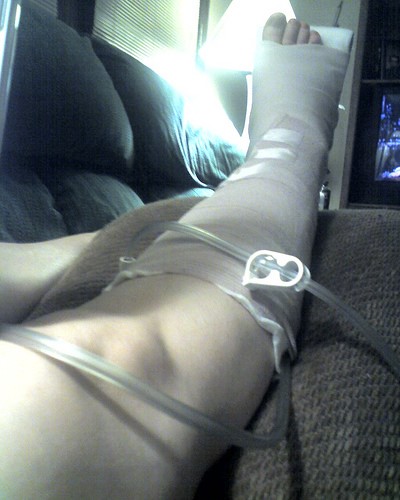Everyone has experienced how fast technology changes. In only one decade, the world went from slow, dial-up internet to fast 4G speeds on mobile phones. Health technology is changing just as rapidly. Take a look at these seven innovative technologies that are improving people’s lives.
Brain Implants for Paralyzed People
Contents
In the past, quadriplegic people and people with other degrees of paralyses had no hope of living the same life as non-handicap people. Confined to wheel chairs, some handicap people needed a lot of assistance to make it through the day. However, doctors are now coming up with ways to give people with paralysis hope for more normal lives.
For instance, Jan Scheuermann has brain implants that let her control a robotic arm. She can manipulate seven joints using just her mind. As this innovative technology improves, there’s no telling how common it will become in treating patients with paralysis.
Apps to Help Monitor Your Health
Image via Flickr by liewcf
Whether you want to keep track of how long you run, check your pulse, look up information about your health, or simply track your diet, there are several mobile apps to help you do all this. Some of the best health apps include Calorie Counter, iSp02, Run Keeper, Nike Training Club, and MapMyFitness+. because they are convenient to use, health apps are changing the way people live their lives and making everyone healthier.
Wound VAC Therapy to Speed the Healing Process
Image via Flickr by soccerkrys
Some surgeries need large incisions which typically take months or longer to heal. However, the wound vac is an innovative piece of technology that helps speed up the healing process. Basically, it uses negative pressure to help blood circulate at a person’s wound site. The wound vac also facilitates drainage to promote better healing. Wound vacs have become a very popular health device for use after surgery.
Apps to Help with Infertility
Many women have trouble getting pregnant — some have problems with ovulation, others have conception problems, and some have unexplained infertility. Reproductive technology has come a long way in the past few years. For instance, the ivfPredict app looks at several health factors to decide the best course of action for treating infertility. It can tell a person their chances of being successful at IVF based on their reproductive history, age, weight, family medical history, and more. It can also help you decide if you need the help of egg donor agencies.
Clinical Prescription Studies to Improve Medicine
Prescription drugs are the most common way that doctors treat illnesses. There is medicine for everything from diabetes and heat disease, to gout and seizures. Clinical studies use creative ideas to test and improve these drugs so that more people can successfully treat and manage their health. Laboratory tests go beyond testing on rats with simulation machines that act like real people. This improves medicine for everyone and puts fewer animals at risk.
Software to Predict Seizures and Give Warnings
An estimated 50 million people have Epilepsy, a medical condition that causes seizures. Hopkins University came up with a device that can predict when a seizure is about to occur because it is implanted into the brain. It connects to a neurostimulator and then uses software to alert the patient. This piece of innovative technology is improving the lives of people with Epilepsy by helping them prepare for seizures and find out what triggers them.
Genetic Testing for Illness Prevention
Thanks to innovative technology, doctors can now look at a person’s family medical history and test their genes to predict the likelihood of them contracting certain diseases. This sometimes allows people to take preventive measures. For instance, a doctor can tell if a person has a high risk of getting diabetes, and then that person can make lifestyle changes, such as eating healthier and exercising to prevent diabetes. Of course, diabetes is only a starting point — genetic testing is used to help predict breast cancer, arthritis, reproductive issues, and more.
These are just a few of the recent technology changes that are improving people’s health and overall quality of life. Hopefully there will be more revolutionary ideas to come to increase cancer patient survival and to help other people with medical problems in the future.


